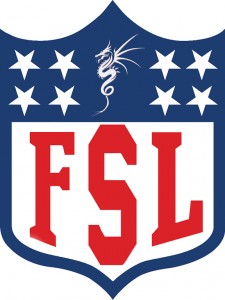Tom’s on assignment today, so he called his most trusted fill-in host – YOU! We’ve got listener thoughts on the Amazon Fire, Facebook and Oculus, the Adobe Creative Cloud, and a genuine Molly Wood Heartbleed rant. Plus Jon Strickland has some thoughts about the (much) bigger picture.
 News From You The Third
News From You The Third
MP3
Video version with still photo and audio.
Please SUBSCRIBE HERE.
A special thanks to all our Patreon supporters–without you, none of this would be possible.
If you enjoy the show, please consider supporting the show here at the low, low cost of a nickel a day on Patreon. Thank you!
Big thanks to Dan Lueders for the music and Martin Bell for the opening theme!
Big thanks to Mustafa A. from thepolarcat.com for the logo!
Thanks to our mods, Kylde, TomGehrke and scottierowland on the subreddit
Show Notes
Headlines:
BlackBerry CEO John Chen told Reuters, “If I cannot make money on handsets, I will not be in the handset business,” which lead headline writers to declare BlackBerry would dump handsets. So Chen wrote a blog post Thursday that said “I want to assure you that I have no intention of selling off or abandoning this business any time soon,” referring to the devices business. So what gives? Pretty easy if you think about it. Chen said he won’t stop making devices soon but if he can’t make money off it eventually he’ll get out of the business. Stop SAYING REASONABLE THINGS JOHN CHEN, IT CONFUSES US!
Does hearing more about the Heartbleed vulnerability make your brain bleed? Lastpass to the rescue! The passwords storage and checker won points for fixing the vulnerability on their own site quickly and for the solid practice of encrypting traffic on another level. Now Lastpass users have a handy tool to help them decide if and when to change passwords due to heartbleed. The security checkler function in lastpass wills can all stored passwords and highlight any servers that have not patched OpenSSL 1.01 PLUS whether they’ve updated their security certificate. It’s all summarized in an action entry that either says wait, or Go update.
TechCrunch reports Google’s Advanced Technology and Projects (ATAP) group has released a Module Developers Kit (MDK) for Project Ara, its forthcoming modular smartphone. That means hardware developers can start working on modules that would fit into the Google-made endoskeleton. Without independent companies making lots of modules, Project Ara won’t be very interesting, so go et ‘em developers.
TechCrunch also reports Facebook is taking the messaging capability out of the standard Facebook app. That means you’ll need to download the Facebook Messenger app if you want to chat with friends on the service on your mobile device. People who already downlaoded the Messenger app might not notice since the messenger tab automatically detects the messenger app and links to it if it’s there. Facebook will roll the change out slowly, starting in Europe and notify users several times before the messaging tabs actually disappears. The change doesn’t affect users of Facebook’s Paper app.
Remember Comcast submitted their 180-page filing on why a merger with Time Warner Cable would be good? Among the many reasons Comcast pointed out they don’t compete with TWC because they have no overlapping markets. CNET reports, Senator Al Franken found that interesting. During a US Senate Judiciary Committee hearing on the merger, Senator Franken pointed out Comcast cited competition with Time Warner Cable as a reason to approve Comcast’s acquisition of NBC Universal in 2010. The hearing does not have any direct influence over approval of the merger.
The Dropbox-owned mailbox app is now available for Android. Engadget reports it even has some features not found int he iOS version., including a new auto-swipe feature that teaches the app which emails you archive and defer until later and acts appropriately when it sees them. The company also showed off a preview of mailbox for the desktop.
Dropbox also made the news with the addition of Dr. Condoleeza Rice to its board of Directors. PC Magazine reports that Dropbox CEO Drew Houston made the announcement along with the news that Sujay Jaswa and Dennis Woodside have been named CFO and COO, respectively. Rice has been Provost of Stanford University, served on the board of several companies like HP and Charles Schwab, and is likely best known for serving as US Secretary of State under President George W. Bush. Rice was also National Security Advisor from 2002 until 2005. That is an advisory White House position with no authority over any departent.
News From You!
Toby Pinder on Heartbleed and the long tail of the internet
KTLA’s Rich DeMuro on Dropbox updates
Justin Crowell on the Adobe Creative Cloud
Dave from Allen, TX on Amazon Fire
David Brodbeck on media portability across devices
Rich from Lovely Cleveland on chips!
Richard Ya on Facebook and Oculus
Molly Wood has a Heartbleed rant (and also an article in the New York Times about it!)
Daemon on airlines using Twitter for customer service
Guillaume on Chromium OS
Patrick Beja on Windows 8.1
Kencade Babb on universal search
And Jon Strickland of Thinking, co-host of TechStuff, and HowStuffWorks writer leaves us with some thoughts on the bigger picture.
Picks of the Day:
Vudu recommended by Tony Vahl
Gooseberry project by metalfreak
Run Zombies Run! by Sean Palladino
 In 1894 – Alfred Tate, a former Edison associate, and the Holland Brothers, opened a public Kinetoscope in New York City at 1155 Broadway, on the corner of 27th Street. It was the first commercial motion picture house.
In 1894 – Alfred Tate, a former Edison associate, and the Holland Brothers, opened a public Kinetoscope in New York City at 1155 Broadway, on the corner of 27th Street. It was the first commercial motion picture house.

